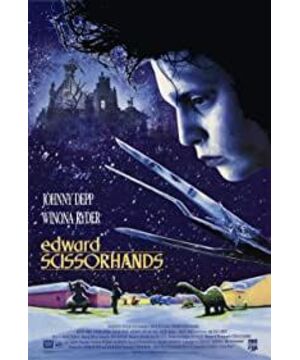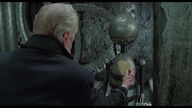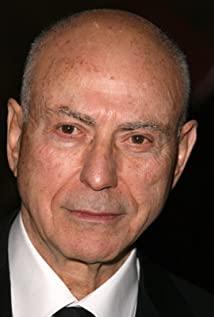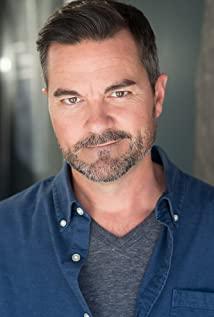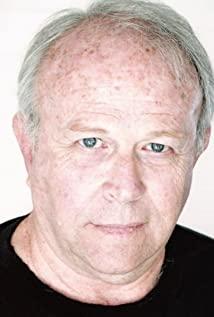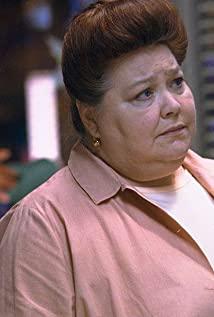A good script is to add strangeness to familiar life. Screenwriters will face a problem in the creative process, whether to write about daily life to make people feel immersed, or to write about non-daily life to make people feel fresh? The answer is both. According to a report in biology, the strangeness in familiarity is the focus of attention, and the proportion of strangeness is 15.87%. If our Edward is not a scissor hand robot, but just a wanderer with the skills of washing, cutting and blowing, and he lives not in a castle, but on a street corner... then the freshness will drop sharply.
Although the proportion of unfamiliar elements is not high, it is very important. In life, people want smooth sailing. But in a movie, if that were the case, it would be utterly boring. If we writers write stories that are commonplace in life, no audience will spend time and money paying for them. What the audience wants is a good-looking story, and one of the basis for good-looking is "freshness". It is for this reason that the films are always full of conflicts such as sex and violence. It can be said that spiritual products are to comfort the soul, and what the soul lacks is the main course. Faced with domestic censorship, screenwriters can’t write political stories like Game of Thrones, crime stories like Game of Thrones, or ghost stories like Zombie Bride. The real world always has many constraints, but all dances are shackled, so consider these constraints as propositional compositions. Of course, the violence in the movie does not require physical violence at all. The psychological, spiritual or emotional conflict is more advanced. This violence is a generalized violence, not a simple physical conflict.
Life is real and movies are always made up. It is better to use reasonable impossibility than unreasonable possibility. To make up a big lie. The film is not about reality, but about fantasy. In fact, the audience has long realized that the movie is a grand and elaborate lie. The last thing they want to see, and the last thing they should see, is the real situation, because on the street outside the cinema, these real situations can be seen for free everywhere in life.
The logic of life is far less important than the logic of the story. Why does a scientist need to evolve a little bit to make a robot? Why can a robot eat and get drunk? Since he needs food, why does he live in the castle? Why is the castle so close to the town but inaccessible? Why does Ms. Avon go up the mountain... The screenwriter may be in creation There will be various basic logical questions, but for the audience, these life logics are far less important than the story logic. The logic of the story is: whether the foreigners can live in harmony with the people of the town, and the emotional direction of Edward and Carrie. On these two main logics, the story is believable.
The primary task of creation is to create movement, which is tangible and emotional. The primary action created by the screenwriter is "cutting". Perhaps his inspiration was on a summer afternoon, after a morning without writing a word, watching the gardener trim the trees with scissors outside the window, the trees turned into dinosaurs, the screenwriter I began to think, "If a person's hand is itself a pair of scissors, it can prune trees flexibly, even cut paper, cut hair..." This action is the "premise" - a hypothetical premise, or a reason.
From this action, a story premise is born - this is a hypothetical question, and its basic sentence pattern is: "If..., what will happen?" For example, the premise of "The Richest Man in Xihong City" is: if you spend money finished money. "Killer Lyon": If the warm man becomes a killer. "Robots": If there is only one robot left in the whole earth. "Room" If a child is born, he is imprisoned in a dorm room with only his mother. The premise is less of a closed statement than a controlling thought, it is more of an expression of possibility, it is an open-ended question, what if, what will happen?
The premise of the story must be highly concentrated, and cannot be paralleled in advance. For example, the movie "Room" was separated into two less related stories before and after the escape. Only when the premise is concentrated can the story structure be effectively and meaningfully deduced around the fate of the protagonist, and can the development of the main spine of the story from "basic dramatic actions" to the inevitable "crisis climax" be completed. A story with multiple premise will definitely cause the story structure to be scattered, the characters' desire and motivation are mixed, the primary and secondary characters "you sing and I will appear" compete for performance, weaken each other, and the story's appeal decreases.
From this premise are born characters, who are used to answer this hypothetical question. This character comes from the action, and his action has a desire, and this desire is the answer to the premise, which often means the dominant thought - the theme. Create a premise with action, different screenwriters will have different answers to different premise, this answer has already determined the quality of the protagonist, which also constitutes the master idea of the story. For example, answer: What would happen if a person's hand were a pair of scissors? Different answers will lead to the birth of characters with different desires, which will directly lead to different themes of the story.
Writers should start by looking for an action and a character. When you can express your thoughts succinctly through actions and characters - my story is about this person, in this place, he did it. Take this film as an example: my story is about Edward, a robot with a pair of scissor hands, in a small town, helping the residents of the town garden, cut their hair, trim their hair, and at the same time fall in love with a human girl.
A crunch, a climax. It should be noted that the premise is centralized, the answer to the premise is open, and the dominant thought after a certain answer is determined is concentrated, and the audience's understanding of the dominant thought is open.
The controlling idea of a complete story must be able to be expressed in one sentence. In many cases, the more you structure your story around a clear idea, the more meaning the audience will find in the film. Conversely, the more ideas you try to cram into a story, they squeeze each other and eventually the film collapses without expressing anything. Mastery ideas help screenwriters make critical choices about what's appropriate and what's not appropriate in your story, what should be kept, and what must be removed.
The action of the characters to desire gives birth to the theme of the story, but this theme is obscured and not directly expressed. The task of a screenplay is to tell a story. Stories and themes do not exist independently of each other, they complement each other. The nature of the story determines that there is an important principle behind it, the theme. While a movie without a theme cannot leave a lasting impression, the story and the theme are by no means the same thing. The important responsibility of a screenwriter is to tell a story, not to preach outright, and reasoning is never what movies are good at and should do. As for the audience's realization from the story that "this is a winter love fairy tale", "this is a metaphor about civilization and the other", and "once you were Edward", that is not something that the screenwriter should consider.
The master idea has two components, value + reason. In the climax of the final act, the master mind defines the value of the story, while also identifying the main reason why that value translates into the final state. For example, Edward got love because of his simplicity. In the whole story, Edward did bad things for a while, did good things for a while, was honored for a while, and was chased by the police for a while... In the story, the pros and cons of the master idea will be contested repeatedly throughout the film, The tension continued to intensify, until the climax of the battle between the two sides to decide the winner. In their last play, there is a direct conflict, and this conflict has a climax. At this point, the two sides are fighting, and the winner is the positive thinking. In this film, the climax scene is the conflict between the three people in the castle. Carrie beats her ex-boyfriend, and then Edward makes up for the knife, and finally gets love.
Whether it is possible to obtain feelings simply, "can or can't" is the rhythm of thinking and opposing thoughts fighting each other. "Conflict" is the most fundamental thing in our film art. No matter how internalized his actions are, he beats the heart of all excellent stories, driving the audience to resonate and empathize together!
View more about Edward Scissorhands reviews


